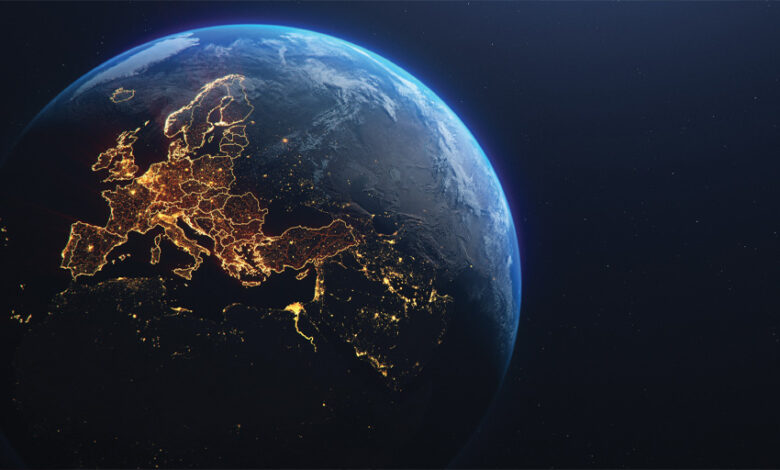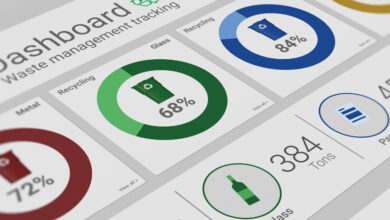European priorities for the environment

Deputy Director General of the Directorate-General for the Environment (DG Environment) at the European Commission, Patrick Child, discusses policy priorities for the environment in Europe.
Setting the context for a wide ranging and comprehensive legislative programme being pursued by the European Commission under the European Green Deal, the Deputy Director General outlines the understanding that the triple crises of climate change, biodiversity loss, and pollution facing the world are interlinked and therefore must be tackled together.
“This is what we are trying to do through European environment policy, joining up these challenges in a unified manner under the overall agenda of the European Green Deal,” he explains.
“The Green Deal offers a path to a different economic model, changing the way we produce and consume. We are getting ready for a zero carbon, zero pollution, more circular, and nature-positive economy.”
Underpinning the Green Deal, explains Child, is a “wide ranging and comprehensive” legislative programme. Currently, over 15 substantial proposals relating to biodiversity, the circular economy, and zero pollution are awaiting approval by the European Parliament and the Council of the European Union, with hopes that 50 new legal acts will be in place under the Green Deal by the end of 2024.
Child believes that this legislation is “laying the ground for systemic changes needed to keep on the right side of our planetary boundaries”.
In May 2022, the European Commission’s eighth Environment Action Programme, geared at guiding European environmental policy until 2030, entered into force. The strategy covers three main policy areas in the form of the circular economy, nature protection, and zero pollution.
Circular economy
Highlighting some of the most significant of the 50 legislative proposals, Child points to the EU’s Circular Economy Action Plan, included in which is a new regulatory framework for batteries, an important step as member states strive to increase electric vehicle use.
“The framework takes a life cycle approach so that batteries are longer lasting, made with recyclable materials, and designed to repurposed, re-manufactured, or recycled,” explains Child.
“This new legal text on batteries is in a way a pilot example of what we are trying to achieve in the circular economy more generally. For example, legislation we proposed last year on eco-design, obliging producers to make goods which last longer, are cheaper to repair, and use less energy and fewer resources.”
The Deputy Director General says that negotiations are underway in the European Parliament and Council to establish the framework for the future circular economy model, which will then be implemented across different sectors through tailor-made, dedicated legal acts in the coming months and year.
One of the first sectors being targeted, explains Child, is textiles. The EU Strategy for Sustainable and Circular Textiles was published in March 2022, aiming to create a new textiles eco-system, which creates economic value, while cutting negative impacts of trends such as ‘fast fashion’.
Similarly, building on a European Strategy for Plastics in 2018, which aims to improve the economics and quality of plastic recycling, cut waste, and drive investment in innovation throughout the value chain, the DG Environment is working on new legislation which proposes to cut packaging and packaging waste to ensure all EU packaging is reusable by 2030.
Biodiversity
Turning to work on nature and biodiversity, Child points to the recently adopted regulation on deforestation which will enter fully in to force in 2024.
“Europe is facing up to its responsibility as a major market and our plan is to decrease our contribution to the products that are linked to deforestation around the world, and instead favour products which are deforestation-free,” he says.
“Importantly, this is a legal framework which applies equally to products which are made in the European Union, and those imported from third countries. Therefore, we are working very actively with major private producers of forest products, globally, to ensure a smooth transition.”
Child believes that the decisive action on deforestation is an exemplar of the European Union’s “global leadership on biodiversity”, which he says it is proud to exercise.
Describing such leadership as vitally important to global climate ambitions, he also highlights the establishment of a “groundbreaking agreement” of the Kunming-Montreal Global Biodiversity Framework, adopted during COP15 following a four-year consultation and negotiation process.
The far-reaching agreement, to restore 30 per cent of the world’s degraded eco-systems by 2030, while also substantially increasing financial support for developing countries (€200 billion by 2030), requires “challenging but necessary” work in the years ahead.
Zero pollution
Child explains that the third major pillar of the EU’s environment strategy, is the one addressing citizen concerns for the want to breath clean air, drink clean water, and consume toxin free products.
According to the European Environment Agency (EEA), over 300,000 Europeans die prematurely each year as a result of air pollution, and the deputy Director General believes it to be among the EU’s largest environmental challenges, particularly because of recognition that the impacts tend to be greatest on the most vulnerable, and the resulting associated high costs to the economy for health care systems.
The European Commission has recently proposed to revise the Ambient Air Quality Directives to substantially improve EU air quality standards in line with the WHO objectives.
Child adds: “We are also working very actively to finalise negotiations on proposals to modernise our Industrial Emissions Directive, to reduce pollution further and to steer the green transition of large industries and agri-industrial installations, by controlling their emissions to the air, water, and soil.
“Under our zero pollution framework, we are also modernising the Urban Wastewater Treatment Directive, an increasing concern in many member states, particularly as they deal with changing weather patterns and increased flood risks.”
Linked to progress on zero pollution, the European Commission continues to deliver actions on the Chemicals Strategy for Sustainability, published in October 2020. In particular, Child says that proposals are currently being developed for a targeted revision of the REACH regulation, the main regulatory framework for the management of chemicals in the European Union.
Child says that the aim is to achieve the ambition of safe and sustainable chemicals, with a high level of protection if the environment, while preserving the internal market.
Originally expected to be adopted before the end of 2023, the REACH revision has now been shifted to the next Commission mandate and is now not expected to gain approval until late 2024 or early 2025.
Ireland
Pertinent to the island of Ireland, Child points to progress particularly in the Soil and Nature Restoration directives. According to the Deputy Director General, up to 70 per cent of European soils are in a poor state, costing more than €50 billion annually.
“Our idea is for new rules on soil to give the same legal protections which air and water have been enjoying for decades. This will be beneficial to Irish farmers because more sustainable soil management will lead to improved fertility. As well as increasing yields, this has the potential to reduce inputs like water and fertiliser, which are increasingly more costly over the longer term,” he says.

“Turning to the Nature Restoration Law, which has a very direct impact on our rural and farming communities, it is an important proposal under our Biodiversity Strategy and is a major need. Today, 81 per cent of protected habitats, 39 per cent of protected birds, and 63 per cent of other protected species are in a poor or bad state. There is an urgent need to make good the damage of the past, going beyond the protection of habitats and landscapes, to nature restoration, and investing to restore nature.
“This means investing in food security, in the availability of fresh water, clean air, flood protection and the other eco-system services. We hope that with the EU Council and Parliament having now reached their positions on these proposals, we will make swift progress and get agreement by the end of 2023.”
Priorities
Speaking in the days following European Commission President Ursula von der Leyen’s State of the Union address, Child emphasises the point made by the President that 90 per cent of the Commission’s proposals outlined in its original declaration, including the European Green Deal, have already been delivered.
With European elections set to be held in June 2024, Child says that the focus is on finishing the job, requiring the continued support of member states to not only get legislation adopted, but more importantly, ensure effective implementation.
“We have achieved huge progress with the European Green Deal in the past few years, notwithstanding the challenges of the global pandemic and the Russian invasion of Ukraine. We look forward now to the full and effective implementation of this agenda,” he concludes.





